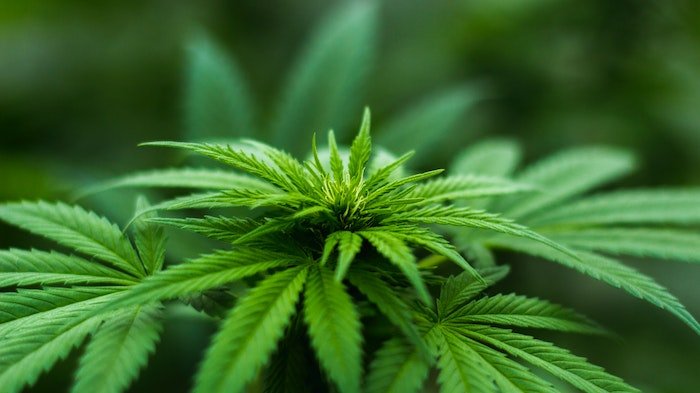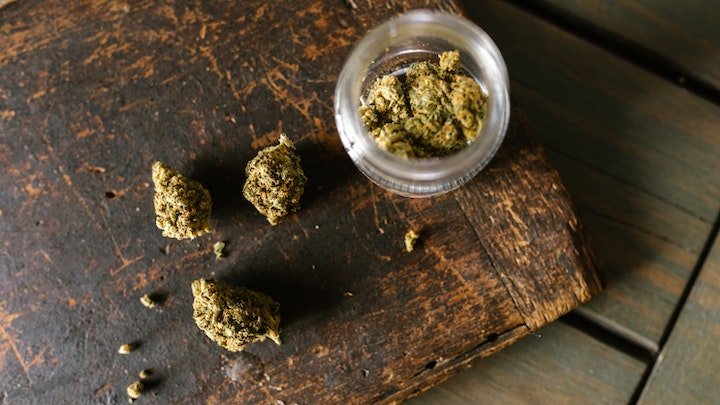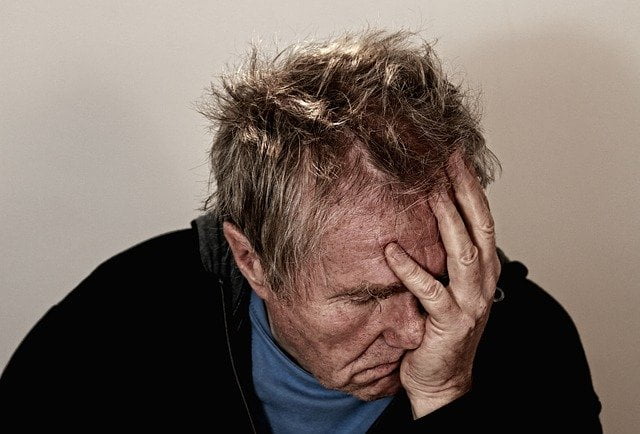How to Quit Smoking Weed
Weed, also known as marijuana, cannabis, pot, grass, hash, dope, ganja, among many other names, is one of the most frequently consumed addictive substances after tobacco and alcohol.
When it comes to illegal substances, weed is the most frequently consumed drug in the world.
Out of around 130,490 adults who entered addiction treatment in the UK from April 2020 to March 2021, it was estimated that over one in five patients were addicted to cannabis.
This does not take into account how many people are frequently consuming cannabis and are exposed to developing an addiction each time they consume it.
Additionally, many people may be addicted to weed without realising it, or they are reluctant to seek help because this would require admitting that they have a problem.
What is Weed?

Weed is a substance extracted from the Cannabis Sativa plant. Its form is of a dark greenish-grey mixture, and it can be smoked, vaped, or even eaten through what is called ‘edibles’.
It is also a psychoactive drug, which means that it affects our minds significantly.
Weed is both a stimulant and a depressant, which may sound contradictory.
It has properties which depress the brain, which reduces brain activity, however, as a stimulant it can also increase heart rate and blood pressure.
Is Weed Addictive?
What makes weed a psychoactive drug are its potent chemicals, with a predominating chemical being called THC (delta-9-tetrahydrocannabinol).
THC is a mind-impairing and mind-altering substance, and it can affect our brains in ways which impair our memory, learning ability, judgement and decision-making, motor skills and coordination, emotions, and much more.
Weed is frequently consumed among the global community and the United Kingdom’s population.
In fact, it is estimated that there are around 3,000,000 people in the United Kingdom who are frequent users of weed. What makes this a huge concern is that the level of THC in weed has been increasing steadily over the years.
This means that the substance is becoming more and more addictive, and people who start smoking weed now are more susceptible to developing an addiction or suffering from its harmful health effects.
Because its addictive effects will be stronger for people starting out, and therefore people who do not have the tolerance for smoking weed, it is likely that a larger proportion of people will be addicted to smoking weed over the next few years.

Smoking Weed
Smoking weed or cannabis in hand-rolled cigarettes is the most common way to consume this addictive drug.
People often combine cannabis with tobacco when smoking the substance.
Because of the presence of another highly addictive substance such as tobacco, people who smoke weed with tobacco are more likely to develop a dependence or addiction to smoking weed.
Furthermore, some people may only opt for weed when they are smoking. When people are smoking only weed and not weed combined with tobacco, people may refer to this as a ‘blunt’.
Smoking is the most effective way to experience immediate euphoria from weed. This is because when someone smokes, chemicals such as THC are transported from the lungs into the bloodstream and into the brain.
The person will feel the effects almost immediately, and this can make smoking weed more addictive.
When a person smokes marijuana, THC quickly passes from the lungs into the bloodstream. The blood carries the chemical to the brain and other organs throughout the body.
The body absorbs THC more slowly when the person eats or drinks it. In that case, they generally feel the effects after 30 minutes to 1 hour.
Vaping Weed
Some people may use vaping devices in order to consume and smoke weed. This still contains the psychoactive chemical of THC, and it is possible that this can also lead to poor lung health and illnesses.
While some studies are inconclusive, many seem to suggest that vaping weed poses similar health complications to smoking weed.
ts health complications potentially include lung diseases, psychosis, anxiety, depression, and so on.
Edibles (Eating Weed)
Some people may decide to ingest weed by eating it rather than smoking it.
When someone eats food which contains weed, one common example is a ‘weed brownie’ or ‘weed cookies’, they may feel the effects of a high after around 30 minutes to an hour, or even longer.
While the effects take longer to take place, this can be dangerous because some people may underestimate the delayed effect of weed when eating it and decide to consume more without realising they are yet to feel its full effects.
Because of the sheer amount of THC which is found in weed today, eating more edibles is dangerous because it puts people at an increased risk of experiencing psychosis, hallucinations, or other harmful reactions.
Why You Should Stop Smoking Weed

In order to recover from smoking weed or ingesting it in any other way, it is important to understand why you should consider giving up.
While it may make people feel relaxed and it may excite people to consume an illegal substance such as cannabis, its benefits are short-lived and are severely outweighed by the negative health complications that it presents.
These health complications, as well as social and behavioural symptoms, come in many different forms, and more than enough which should discourage people from consuming cannabis.
Weed is Highly Addictive and is a “Gateway Drug”
Because of its many addictive chemicals such as THC, people who frequently or excessively smoke weed are much more likely to develop an addiction.
When we consume an addictive substance, whether it be alcohol, caffeine, weed, or else, it activates the ‘reward pathways’ in our brain.
This reward pathway helps us release the ‘feel good chemicals’ in our brain (such as dopamine), meaning that we associate positive and pleasurable feelings with particular experiences.
So, the more we smoke weed, the more we trigger these reward pathways and the release of feel-good chemicals. This will then lead to our brain becoming physiologically dependent on the addictive substance, and it will be much harder to quit smoking weed.
Weed, whether smoked or eaten, is also considered to be the ‘gateway’ drug.
What this means is that smoking weed makes it much more likely that someone will begin consuming other illegal and more harmful substances such as cocaine or heroin, for example.
This is because weed, although illegal, is not as dangerous as consuming other substances such as heroin. However, people who are often tempted by things which are intoxicating, addictive, or illegal may begin by consuming weed.
However, after the structure of their brain’s reward pathways begin to change, they will find it more difficult to naturally produce dopamine when it comes to other experiences.

Because people who smoke weed struggle to replicate the same level of dopamine release with other and more natural activities, they will continue to consume these substances in order to experience euphoria.
Not only can this lead to a dependence on smoking weed, it may also lead to the consumption of other drugs in order to experience greater feelings of euphoria.
Some studies have even suggested that smoking weed increases the risk of someone developing an alcohol addiction.
This is particularly the case when an adolescent is exposed to the effects of smoking weed early in life.
Psychological Health Complications
Aside from its addictive effects, there are many other psychological effects and mental health risks to consider when smoking weed. Some of these effects include:
- Altered Sense of Reality: People who smoke too much weed may experience an altered sense of reality, which can also be called depersonalisation, or a “bad trip”. This is when people feel disconnected from their bodies and reality, and nothing feels real. Depersonalisation can lead to altered states of self-awareness, and experiencing it even once can lead to clinical mental health disorders.
- Irritability and Erratic Moods: Even though cannabis is a “depressant” and it lowers our brain activity, which is why we may feel relaxed and “spaced out” when smoking weed, it can severely impact our moods in the long term. This is because smoking weed affects the brain in a way which impairs our ability to handle and process our emotions. This means that people who smoke weed are much more likely to suffer from irritability and erratic behaviours in the long term.
- Impaired Coordination and Motor Skills: Smoking weed can impair our movement and coordination substantially. Additionally, it can significantly impair our ability to drive. It has been reported that weed is the most commonly found illegal substance in drivers who have been involved in car crashes, including ones which proved to be fatal.
- Impaired Brain Development and Memorisation: Younger weed users are more likely to suffer from impaired brain development due to weed consumption. Consuming weed will also impair memorisation, judgement, and functions which are vital towards learning new skills. While impaired memorisation, for example, can be temporary, long-term weed use can lead to permanent function loss.
- Impaired Brain Development of Foetus: Studies show that of the mothers who consumed weed moderately throughout their pregnancy, their children suffered from some form of impaired brain development. Children of these parents who smoked weed displayed a reduced level of memorisation and attention span, along with other learning difficulties.
- Intrinsic Sleep Problems: While cannabis may make us feel relaxed because it is a depressant, it will also create problems of insomnia. Cannabis can impair REM sleep, which is vital towards memorisation and learning functions. Not only can it decrease sleep quality, it can also make it more difficult to fall asleep.
- Paranoia: Smoking weed can also cause people to suffer from paranoia, especially if they are experiencing a “bad trip”. However, people who smoke weed can also suffer from paranoia throughout the withdrawal stages, which is the earliest stage of abstaining from this addictive drug.
- Hallucinations & Psychosis: Smoking weed in excessive quantities may lead to the development of hallucinations and psychosis. Psychosis is when someone’s mental and emotional state is altered so much that they are experiencing an altered state of reality.
- Schizophrenia: Not only will people who smoke weed have an increased likelihood of hallucinating and suffering from temporary psychosis, it can develop into long term psychosis and mental health disorders such as Schizophrenia. This is a mental health condition where people can hear voices in their head or see things which are not actually there. If the user starts to consume weed at an earlier age, they are more likely to develop schizophrenia as a result of their weed consumption.
- Depression, Social Anxiety, and Suicidal Thoughts: Smoking weed in excessive quantities for a prolonged period of time can lead to the development of mental health issues such as depression, anxiety, and suicide ideation.
Physical Health Complications
While weed, cannabis, marijuana, or whichever form you want to address it by is a psychoactive drug, it can also lead to a range of physical health problems.
Some of these problems may be limited to periods where weed is consumed, whereas others may be a symptom of long term consumption and smoking habits.
Physical effects of smoking weed include:
- Breathing problems: Smoking weed can pose the same risks as smoking tobacco cigarettes, whether or not they use tobacco with their weed. The lungs can become irritated and this can lead to problems such as frequent coughing and even lung infections.
- Nausea and Vomiting: Smoking weed can lead to nausea and vomiting, not only when they are high, but in the long term. Daily long term smokers of weed can develop a condition called Cannabinoid Hyperemesis Syndrome, or CHS. This is a condition where cannabis users suffer from frequent and severe bouts of vomiting, dehydration, and stomach pain. Often, this condition requires medical treatment from health professionals in order to recover safely.
- Increased Heart Rate: After smoking weed, the person’s heart rate will be elevated for a few hours. If they are already suffering from high blood pressure, or an increased heart rate, they may be at risk for suffering from a heart attack.
Less Money Spent on a Drug Which Affects Your Productivity
Buying and smoking weed can have more than one way of affecting your wallet and your bank account. A study estimated that there are around 3,000,000 frequent users of weed in the UK, and they consume around 82.5 grams per year.
It is estimated that a gram of weed costs around £10. So, by these calculations, the average weed consumer in the UK spends around £825 per year on their addictive drug.
Not only are they spending this high amount of money on drugs, but they will also be suffering from its psychological and physical health effects, which can often lead to lost productivity.
Excessive weed consumption can reduce motivation levels, energy levels, and brain performance which will inevitably affect the quality of work which someone puts in.
Advice on How To Quit Smoking Weed and Overcome Marijuana Use Disorder

To stop smoking weed and overcome marijuana use disorder is a huge task because of how addictive it is.
You are not only overcoming a habit, but you are overcoming a dependence on an addictive substance.
Some of the tips on how to quit smoking may include something which you can incorporate into your daily routine or help shape your mentality.
Other tips may include joining support groups (e.g. Marijuana Anonymous) or it may require you to seek the help of a drug and alcohol rehab. Here are some of the most effective tips in order to combat marijuana use disorder.
1. Be Honest About How Much You Are Consuming
In order to overcome marijuana use disorder, addicted people will need to be brutally honest about how much they are consuming.
If they cannot admit how much weed they are consuming, they will struggle to proceed with recovery because they aren’t taking their addiction seriously enough.
Being honest and taking the time to analyse how much weed you are consuming can give you perspective and make you realise just how much time you’re spent ‘high’ compared to the time you are spending sober.
Weed can stay in your system for around one day or even up to a month, meaning even a couple of days of abstaining does not mean you’re spending time at optimal health and sobriety.

2. Acknowledge The Benefits of Abstaining From Smoking Weed
Despite the fact that smoking weed has become a compulsive habit and it is an addictive substance, it is important to stress the benefits of abstaining in order to maintain your recovery.
You need to understand how severe the health complications associated with smoking weed and general weed consumption is to increase your motivation levels towards recovering.
By abstaining from weed, you will be minimising the risks of developing:
- Mental health issues such as anxiety, depression, schizophrenia, and more.
- Lung issues such as coughing, phlegm, and lung infections.
- Decreased levels of energy and motivation.
- Increased dependence on the addictive substance.
3. Analyse How It Is Affecting Your Health and Your Social Life
Addicted people can take personal inventory in order to understand how cannabis addiction has affected their life, and how they want to proceed with their life going forward.
Taking personal or moral inventory is an incredibly effective way to analyse how your life has been affected by addictive substances, and it is included as Step 4 of the 12-Step Programme which is implemented in order to help people recover from substance use disorder.
If you are truly honest with yourself, it can help facilitate your recovery and reinforce your intrinsic motivation towards recovery.
You can analyse how smoking weed is negatively affecting your life by deciding how it affects your:
- Occupational and academic performances
- Relationship with family members
- Romantic relationships and sex life
- Physical wellbeing
- Mental wellbeing
- Finances
4. Adopt a Healthier Hobby or Coping Mechanism
Many people may turn towards smoking weed as a form of coping mechanism. Often, substance use disorders – whether drugs or alcohol – are associated heavily with those who are suffering from mental health disorders such as anxiety and depression.
If someone is suffering from stress or other forms of mental health issues, they may turn towards these intoxicating substances in order to self-medicate.
Self-medicating is the act of consuming substances in order to relieve symptoms without the guidance of a health practitioner.
Smoking weed and drinking alcohol are common forms of coping mechanisms.
Addicted people can develop new hobbies and coping mechanisms in order to shift their focus towards something more productive and healthy when they may be experiencing physical, mental, or emotional cravings.
Hobbies can include anything such as cooking, music, art and crafts, gaming, martial arts, hiking, yoga and fitness, or else depending on the person.
The list is endless, and the purpose is to help addicted people focus on something new which can provide them with a set of objectives, and of course positive experiences in which they can invest more time into.
This can help evoke behavioural activation, which is when people experience positive and pleasurable feelings because they have completed a task or an activity which was enjoyable or fulfilling to them.
5. Setting Small Goals
Recovering from substance use disorder is a huge undertaking, and it can be overwhelming just to view it in its entirety.
This is because it is a lifelong commitment, and it can be difficult to think that your objective will take weeks, months, or even years to accomplish.
Rather, you should break the recovery journey into smaller steps. One simple example that you can employ is taking it one day at a time.
Rather than thinking “I cannot smoke weed for a year”, think “I cannot smoke weed for the next 24 hours“, and that’s it. Once you’ve successfully completed that step, repeat it. The more you repeat it, the easier it will become to sustain your sobriety.
The fact is that you do have the pre-requisite tools to recover from your habits of or addiction to smoking weed. While it may appear to be difficult and impossible at first, it is certainly achievable, especially when we break it down into smaller goals.

6. Seek Treatment at a Drug and Alcohol Rehab
Lastly, one of the most significant steps that someone can do in order to stop smoking weed and overcome marijuana use disorder is to enter a drug and alcohol rehab.
Here, they will have a range of treatment options and personalised recovery programmes which will benefit their recovery.
At a drug and alcohol rehab, patients will be able to undergo therapy and addiction counselling sessions, either as an inpatient or as an outpatient depending on their level of substance dependence.
As an inpatient, patients will be able to focus more on their recovery and they will receive medical supervision throughout their recovery.
Someone undergoing outpatient treatment will spend less time undergoing recovery and will be able to go home each night, meaning that their recovery programme is less intensive but more flexible.
There are many aspects of their recovery which need to be addressed, therefore a combination of behavioural therapies, counselling, and more will need to be utilised.
- Cognitive Behavioural Therapy (CBT): CBT is a highly popular form of therapy and is effective in treating substance use disorders along with mental health issues. The purpose of CBT is to help patients identify their negative and self destructive tendencies in order to develop healthier coping mechanisms.
- Dialectical Behavioural Therapy (DBT): DBT is similar to CBT, however, it places more emphasis on treating patients who are suffering from emotional issues. Patients undergoing DBT will be able to process their emotions more thoroughly by practising techniques related to stress management, mindfulness, meditation, and more.
- Holistic Therapy: Holistic Therapy is different to traditional forms of therapy, and it encompasses a broad range of activities including yoga, equine therapy, art therapy, music therapy, mindfulness, meditation and so on. The purpose of Holistic Therapy is to allow patients to remain active throughout recovery, and decrease symptoms of stress and anxiety by taking part in engaging and relaxing activities.
- Nicotine Replacement Therapy: This is a medically approved method to treat patients who are suffering from cigarette cravings and nicotine addiction. Those who are addicted to weed may also be experiencing cigarette cravings due to the common combination of weed and tobacco.
- Motivational Enhancement Therapy & Motivational Interviewing: These forms of therapy are implemented in order to help patients reinforce their motivation towards recovery. Undergoing sessions will help patients become more committed towards their recovery methods and become more active, rather than passive, in their recovery.
- 12-Step Programme: Patients will be able to undergo an active engagement strategy, which is essentially a lifestyle guideline for them to practise after rehab. The 12-Step Programme will offer a structure on the ways in which patients can sustain their recovery and optimise their life of abstinence. Studies show that former patients who undergo the 12 steps are far more likely to sustain their recovery rather than those who do not follow rehab.
7. Find a Support Network Near You
Social isolation can be a factor which prevents patients and addicted people from sustaining their recovery.
To combat this, people suffering from cannabis addiction can seek the support of fellowship groups. Some popular examples of these are Marijuana Anonymous, Narcotics Anonymous, and SMART Recovery.
The requirements to be a member at one of these fellowship programmes is simple – you must have the desire to recover from your addiction.
You will not need to pay or adhere to religious or political beliefs, as these groups are often nonprofit and apolitical, placing the recovery of the member at the heart of its priority.
By attending these groups, members will be able to attend support sessions with other patients in order to communicate about their addiction and recovery, receive guidance, and to gain insight into the experiences of other members.
Communicating about your experiences of addiction can be cathartic, which means members will experience an emotional release.
This can reduce feelings of anxiety, stress, and other negative feelings.
At these groups, members will benefit from social and positive reinforcement from other members. Because these members each have a common goal, which is to abstain from weed, these fellowship groups will create a healthy and non-judgemental environment for members to express themselves.
Timeline: Withdrawal Symptoms and Changes To Your Body and Mind When You Quit Smoking Weed

Quitting weed can lead to a wide range of health benefits, however, you may initially experience some negative physical and psychological symptoms.
This is because you are suffering from cannabis withdrawal symptoms.
Since you are addicted to this substance, your body willcrave it when you are abstaining.
Withdrawal symptoms can be mild and brief, or they can be more severe and last for as long as weeks – it all depends on the severity of someone’s addiction is to this particular substance.
However, no matter how strong your addiction, a cannabis detox is never needed.
Some of the withdrawal symptoms associated with weed use include:
- Anger and irritability
- Paranoia
- Anxiety or Depression
- Insomnia
- Lethargy and fatigue
- Fevers
- Headaches
While the withdrawal symptoms associated with cannabis use are not threatening enough to lead to mortality, they can be the indirect cause of accidents, injuries, or death.
This is because people’s emotional tolerance will be reduced significantly, and they will be much more prone to accidents due to their loss of motor and coordination skills.
Because of these complications, addicted people are advised to seek the assistance and guidance of addiction specialists.
What happens to your body when you abstain from smoking weed?
24 Hours of Abstinence
Within the first 24 hours of abstaining from weed, addicted people will begin to experience withdrawal symptoms. These often include:
- Headaches
- Nausea
- Fatigue
- Irritability
- Paranoia
- Anxiety
- Depression
2 to 7 Days of Abstinence
The lungs begin to repair themselves, and some withdrawal symptoms will begin to subside during this time. Bronchial tubes which are in our chest will have started to relax, and people will also experience an increase in energy.
Withdrawal symptoms such as irritability and anxiety in particular begin to decrease during this stage, after peaking at around day 3 of abstaining.
However, symptoms of insomnia may increase during this time. In fact, symptoms of insomnia may persist for weeks or even months depending on the severity of dependence.
Receptors in the brain will also begin to return to normal. This means that people’s motivations and memory will begin to improve once again.
Statistically, however, days 5 to 7 are the most frequent in which people relapse.

1 Month of Abstinence
After abstaining from cannabis for around a month, people will begin to experience a significant improvement in cognitive functions such as memorisation, focus, attention span, and more.
Depending on the severity of someone’s dependence to addictive substances such as weed, they may experience withdrawal symptoms for an extended period of time, potentially up to a year.
These symptoms are less likely to be physical and are more likely to come in the form of insomnia.
Get the help you need to quit smoking weed by calling our expert addiction team today on 0800 088 66 86.









